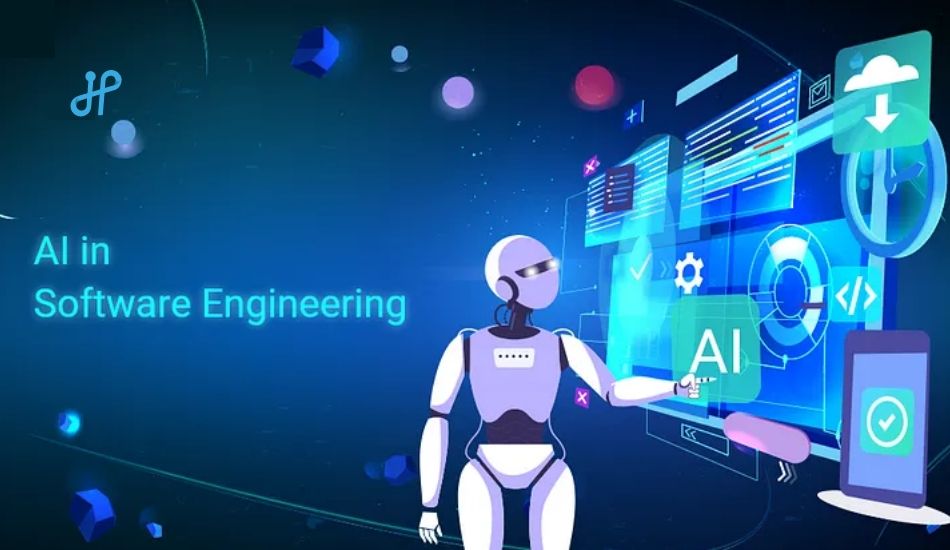AI Software Engineer: Unveiling AI Engineering
In the realm of modern technology, the role of artificial intelligence (AI) is becoming increasingly paramount. As businesses strive to innovate and streamline their operations, AI software engineer stand at the forefront, wielding the power to revolutionize industries and drive unprecedented growth. In this comprehensive guide, we delve into the intricacies of AI software engineering, exploring its significance, key skills, career prospects, and the future landscape of this dynamic field.
Understanding the Significance of AI Software Engineering
AI software engineering lies at the intersection of computer science, data science, and machine learning. It involves the design, development, and deployment of intelligent systems capable of performing tasks that traditionally required human intelligence. From natural language processing and computer vision to predictive analytics and autonomous decision-making, AI software engineers harness the power of algorithms and data to create solutions that enhance efficiency, productivity, and innovation across various domains.
Essential Skills for Aspiring AI Software Engineers
Becoming proficient in AI software engineering requires a diverse skill set and a deep understanding of core concepts. Here are some essential skills for aspiring AI software engineers:
- Programming Proficiency: Mastery of programming languages such as Python, R, Java, or C++ is fundamental for AI software engineer. These languages serve as the building blocks for developing AI algorithms and applications.
- Machine Learning Expertise: A solid grasp of machine learning algorithms, including supervised learning, unsupervised learning, and reinforcement learning, is essential. Understanding how to train, evaluate, and optimize machine learning models is crucial for creating effective AI solutions.
- Data Processing Skills: AI software engineers must be proficient in handling large volumes of data. This includes data preprocessing, feature engineering, and data visualization techniques to extract meaningful insights and patterns.
- Deep Learning Knowledge: Deep learning, a subset of machine learning, plays a pivotal role in AI applications such as image recognition, speech recognition, and natural language processing. Familiarity with deep learning frameworks like TensorFlow and PyTorch is advantageous.
- Problem-Solving Abilities: AI software engineers must possess strong analytical and problem-solving skills to tackle complex challenges and optimize algorithms for performance and scalability.
- Domain Expertise: Depending on the industry or application area, domain-specific knowledge is invaluable. Whether it’s healthcare, finance, automotive, or e-commerce, understanding the nuances of the domain enhances the effectiveness of AI solutions.
Career Paths and Opportunities
The demand for AI software engineers is skyrocketing across various industries, presenting abundant career opportunities for skilled professionals. Some common career paths in AI software engineering include:
- Machine Learning Engineer: Responsible for designing and implementing machine learning systems and algorithms to solve specific business problems.
- Data Scientist: Utilizes statistical analysis and machine learning techniques to extract insights from data and drive informed decision-making.
- AI Research Scientist: Conducts research to advance the field of artificial intelligence, exploring new algorithms, models, and techniques.
- AI Application Developer: Focuses on building and deploying AI-powered applications and services tailored to meet specific user needs.
- AI Consultant: Provides expertise and guidance to organizations looking to integrate AI technologies into their operations and strategies.
The Future Landscape of AI Software Engineering
As AI continues to evolve at a rapid pace, the future landscape of AI software engineer holds immense promise and potential. Advancements in deep learning, natural language processing, and reinforcement learning are pushing the boundaries of what AI can achieve. From autonomous vehicles and virtual assistants to personalized medicine and smart cities, AI-driven innovations are poised to reshape industries and transform the way we live and work.
In conclusion, AI software engineering represents a groundbreaking field that is driving innovation and shaping the future of technology. By mastering essential skills, pursuing diverse career paths, and staying abreast of emerging trends, aspiring AI software engineers can embark on a rewarding journey towards success in this dynamic and ever-evolving domain.


